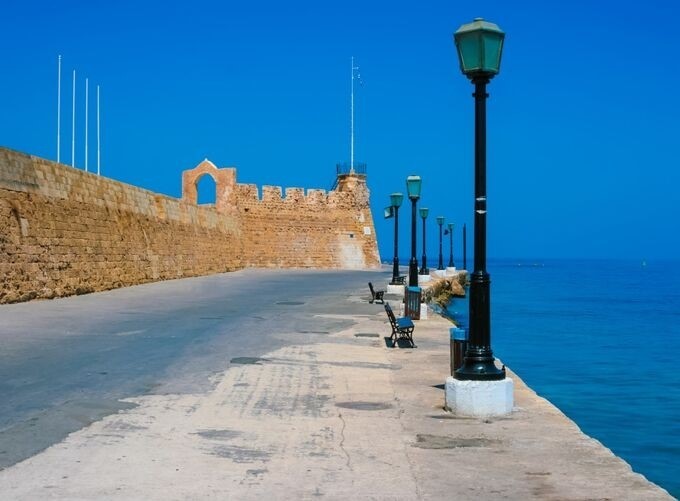
Perfect Greece Trip Planning Guide for First Time Visitors
Greece is one of the world’s most inspiring destinations, offering ancient history, breathtaking islands, delicious cuisine, and warm hospitality. Whether you are planning a romantic escape, a family holiday, or an adventure-filled vacation, careful preparation helps you enjoy every moment.
This complete guide explains how to plan a perfect trip to Greece, covering timing, destinations, budgeting, transportation, and choosing the best travel packages for your needs.
Choose the Best Time to Visit Greece
Selecting the right season is the first step in planning your trip.
Spring (April–June)
Ideal for sightseeing, mild temperatures, blooming landscapes, and fewer crowds.
Summer (July–August)
Best for beach lovers and island hopping, but busy and more expensive.
Autumn (September–October)
Warm seas, pleasant weather, lower prices, and excellent for relaxed vacations.
Winter (November–March)
Quiet cities, cultural travel experiences, but limited island services.
For most travelers, late spring and early autumn offer the best balance between comfort and value.
Decide Which Places to Visit
Greece offers diverse experiences across its Greece mainland and islands.
Athens
Ancient landmarks like the Acropolis, museums, and vibrant city life.
Santorini
Romantic sunsets, volcanic beaches, luxury resorts.
Mykonos
Beaches, nightlife, stylish shopping, and nearby Delos island.
Crete
History, beaches, mountains, and traditional villages.
Rhodes, Corfu, Paros, Naxos
Ideal for quieter holidays and authentic island culture.
Many travelers choose multi-destination Greece travel packages to experience both mainland and islands efficiently.
Set Your Travel Budget
Understanding costs helps avoid surprises.
Typical daily expenses per person:
- Budget traveler: €70–120
- Mid-range traveler: €130–220
- Luxury traveler: €300+
Costs include accommodation, meals, sightseeing, transportation, and activities.
Booking flight and Greece hotel packages often saves money and simplifies planning.
Plan Your Greece Itinerary Wisely
Avoid rushing between too many places.
Suggested pacing:
- Athens: 2–3 days
- One island: 3–5 days
- Two islands: 7–10 days total trip
Mix cultural sightseeing with beach relaxation to create a balanced Greece holiday experience.
Book Flights and Accommodation Early
Flights to Athens are frequent from Europe, the Middle East, and North America.
Tips:
- Compare prices early
- Use flexible dates if possible
- Book island flights or ferries in advance during high season
Accommodation options include:
- Hotels
- Boutique guesthouses
- Resorts
- Private villas
Early booking secures better locations and rates, especially for summer vacations.
Understand Transportation in Greece
Getting around Greece is straightforward.
Domestic Flights
Fast for long distances between islands and mainland cities.
Ferries
Popular for island hopping, scenic and affordable.
Public Transport
Efficient metro and buses in Athens.
Car Rentals
Best for exploring Crete, Peloponnese, or remote villages.
Many organized Greece Tours packages include transfers and transportation for convenience.
Prepare Travel Documents and Essentials
Before departure:
- Passport valid for at least six months
- Check visa requirements (Schengen Area)
- Travel insurance
- Copies of reservations
- International driving license (if renting a car)
Pack light clothing, walking shoes, sunscreen, and modest attire for churches and monasteries.
Plan Activities and Sightseeing in Advance
Popular attractions sell out quickly in high season.
Pre-book:
- Acropolis tickets
- Island cruises
- Wine tours
- Guided city tours
- Museum passes
This saves time and avoids long queues during your vacation.
Choose the Right Greece Travel Packages
Travel packages offer:
- Hotel bookings
- Airport transfers
- Ferry or flight tickets
- Guided sightseeing tours
- Local assistance
They are ideal for first-time visitors or travelers wanting a stress-free experience.
Customized packages allow flexibility, while group tours offer cost savings.
Respect Local Culture and Travel Smart
- Greet politely
- Dress modestly at religious sites
- Tip 5–10% in restaurants
- Avoid peak hours at major attractions
- Stay hydrated during summer
These small habits improve your overall travel experience.
Final Thoughts: Creating Your Perfect Greece Vacation
Planning a perfect trip to Greece means combining smart timing, destination choices, budgeting, and transportation with your personal travel style. Whether you dream of island sunsets, ancient temples, or delicious food, Greece offers endless possibilities.
With thoughtful preparation or carefully selected travel packages, your holiday in Greece can become one of your most memorable vacations ever.

FAQs – How to Plan a Perfect Trip to Greece
- How far in advance should I plan a Greece trip?
Start planning three to six months ahead for best flight prices, hotel availability, sightseeing reservations, and Greece travel package deals. - What is the best month to visit Greece?
May, June, September, and October offer excellent weather, fewer crowds, and affordable vacation costs. - Is Greece expensive for tourists?
Costs vary, but budget travelers and luxury tourists both find suitable options with proper planning. - Should I book travel packages or plan independently?
Packages simplify transportation and sightseeing, while independent travel offers flexibility and personal scheduling. - How many days are ideal for a Greece vacation?
Seven to ten days allows comfortable sightseeing, island visits, and cultural experiences without rushing.



